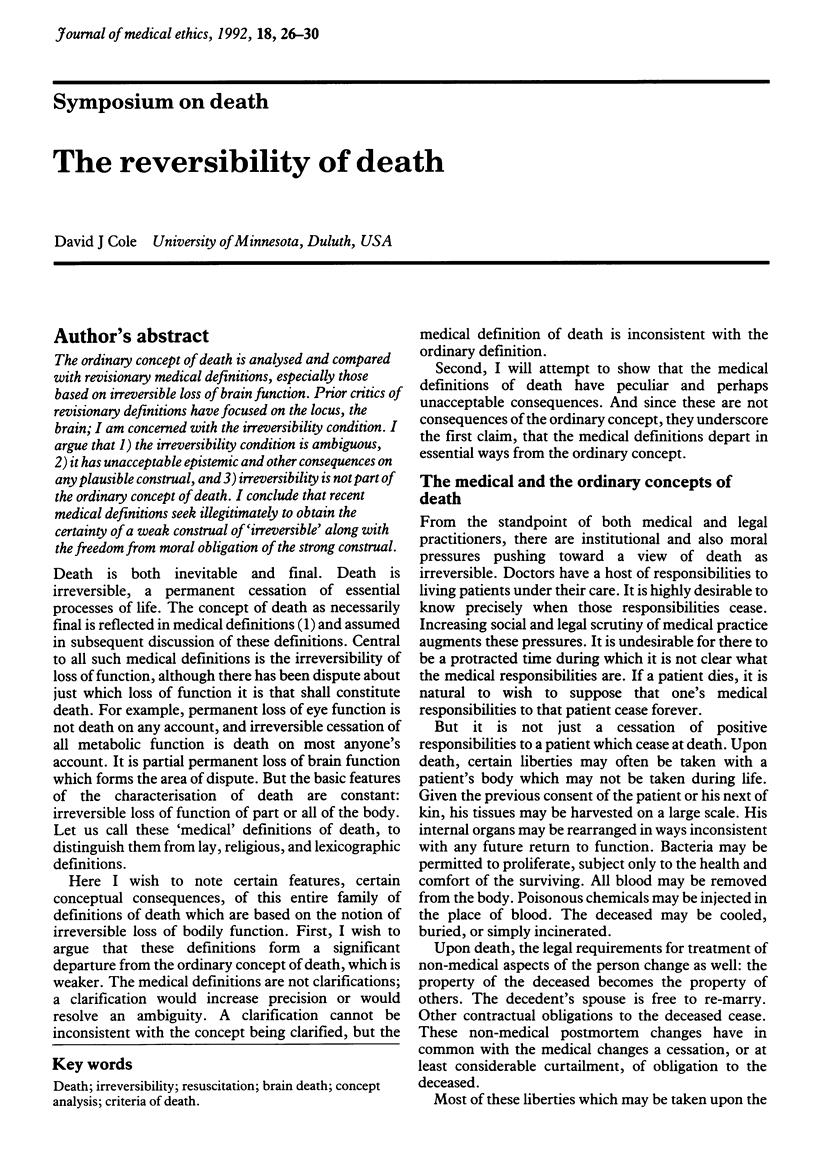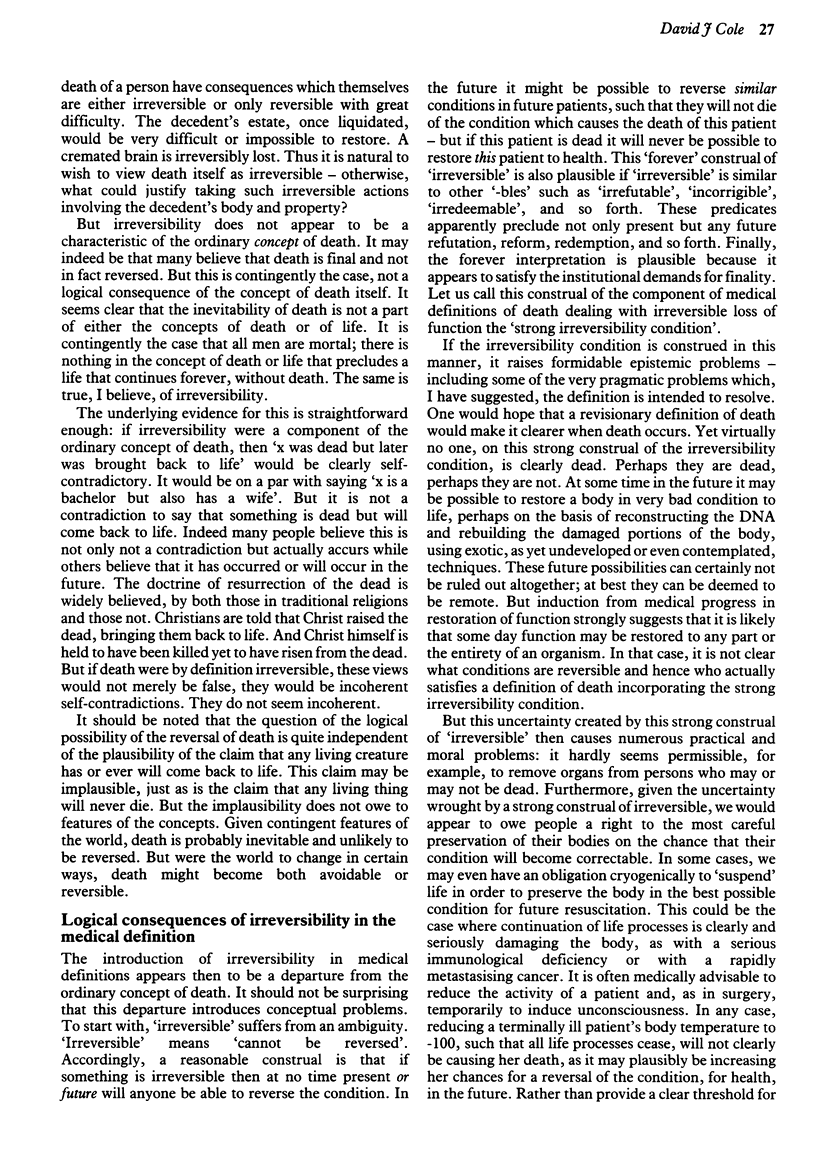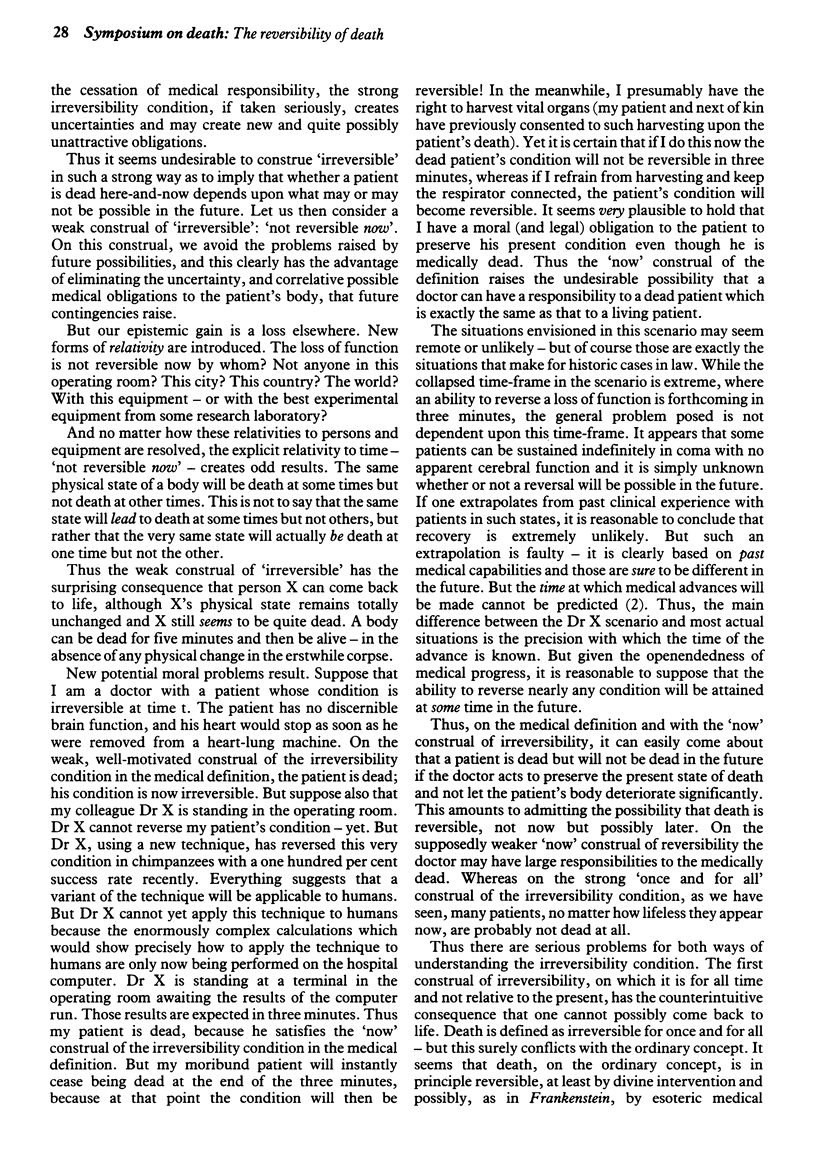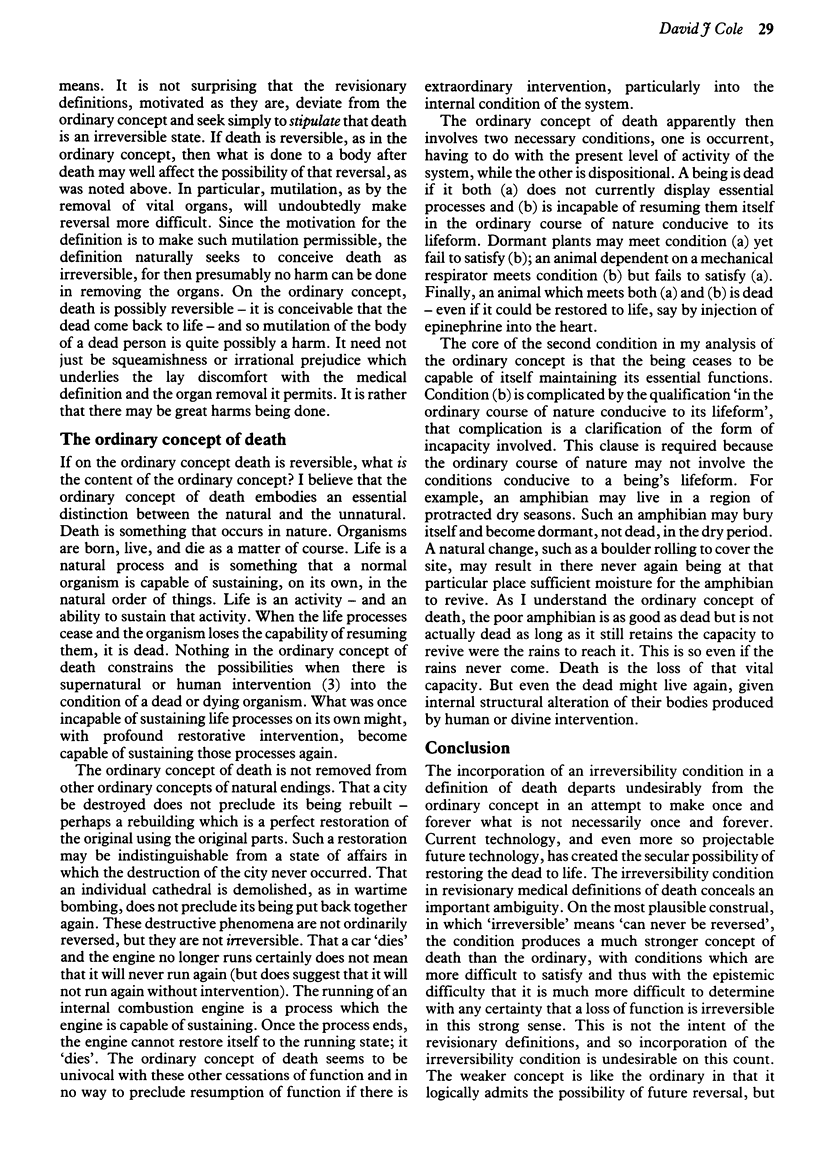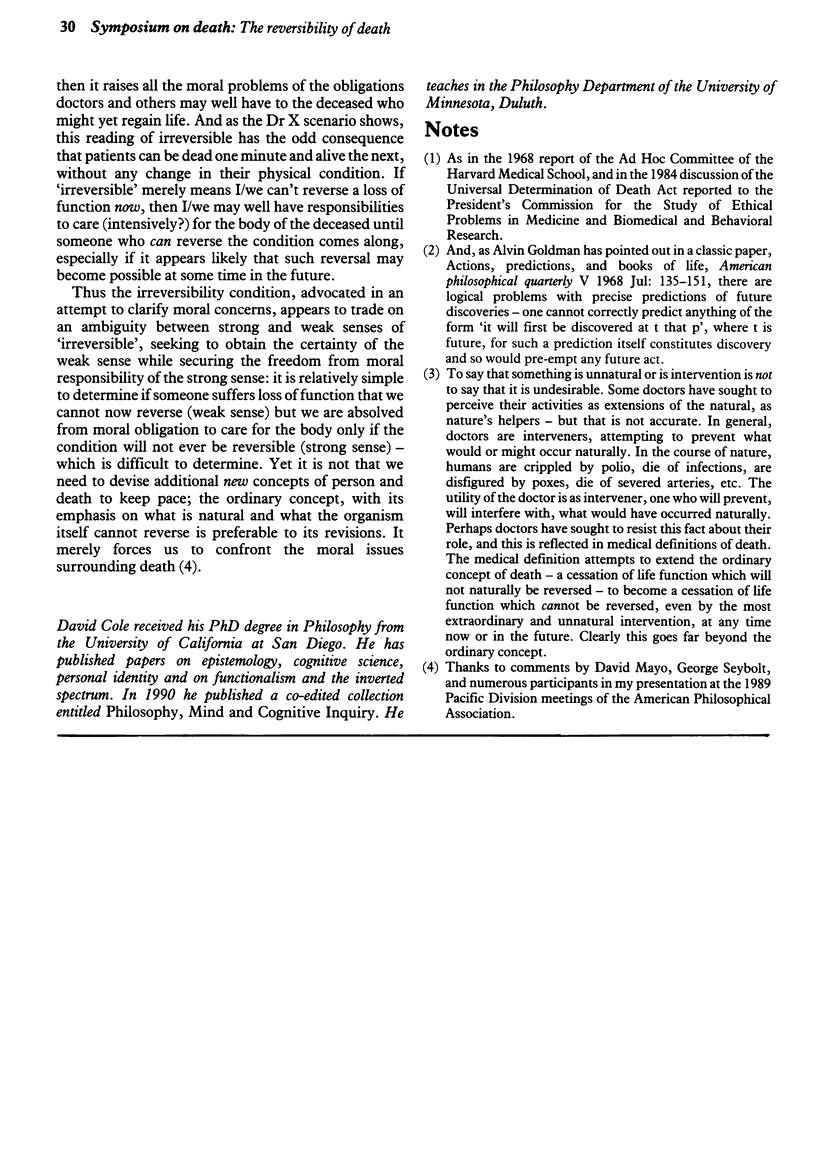Abstract
The ordinary concept of death is analysed and compared with revisionary medical definitions, especially those based on irreversible loss of brain function. Prior critics of revisionary definitions have focused on the locus, the brain; I am concerned with the irreversibility condition. I argue that 1) the irreversibility condition is ambiguous, 2) it has unacceptable epistemic and other consequences on any plausible construal, and 3) irreversibility is not part of the ordinary concept of death. I conclude that recent medical definitions seek illegitimately to obtain the certainty of a weak construal of 'irreversible' along with the freedom from moral obligation of the strong construal.
Full text
PDF